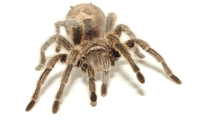Fears, Phobias, Posttraumatic Stress and Cortisol

If the prospect of standing up to speak in front of hundreds of people or the sight of a giant hairy spider has you quaking with fear, you may be surprised to learn that the cure may be a dose of the stress hormone cortisol.
In a study from the University of Zurich in Switzerland, Dominique de Quervain and his team gave either cortisol a.k.a. hydrocortisone, or its precursor, cortisone, to volunteers with arachnophobia – a fear of spiders – or phobias linked to social situations. A control group received a placebo. An hour later, the volunteers were confronted with a picture of a spider or given a public-speaking assignment. Their anxiety levels were evaluated both by heart rate and by asking them how they felt.
The people who had been given a dose of cortisol or cortisone were less anxious than those given the placebo. In the case of the people with arachnophobia, who had several testing sessions, fear levels dropped progressively with each session. In the placebo group, the volunteers who naturally had higher levels of cortisol were less anxious. The researchers concluded that the hormone damps down, rather than causes, the fear response.
This is in contrast to most theories that say cortisol triggers stress: it actually seems to be the other way round. Cortisol has a protective effect, a finding that could lead to new phobia therapies.
This finding follows the demonstration that cortisol may prevent the development of posttraumatic stress disorder (PTSD) following critical illness and major surgery, probably by inhibiting the formation of traumatic memories.
This makes good sense. If you are exposed to acute stress the last thing that you want to have happen is to be hamstrung by constant intrusive memories of the event. By this line of reasoning, the question is instead why the system failed in people who went on to develop PTSD. It may be that the genetic component has something to do with a short circuit in this protective mechanism.






